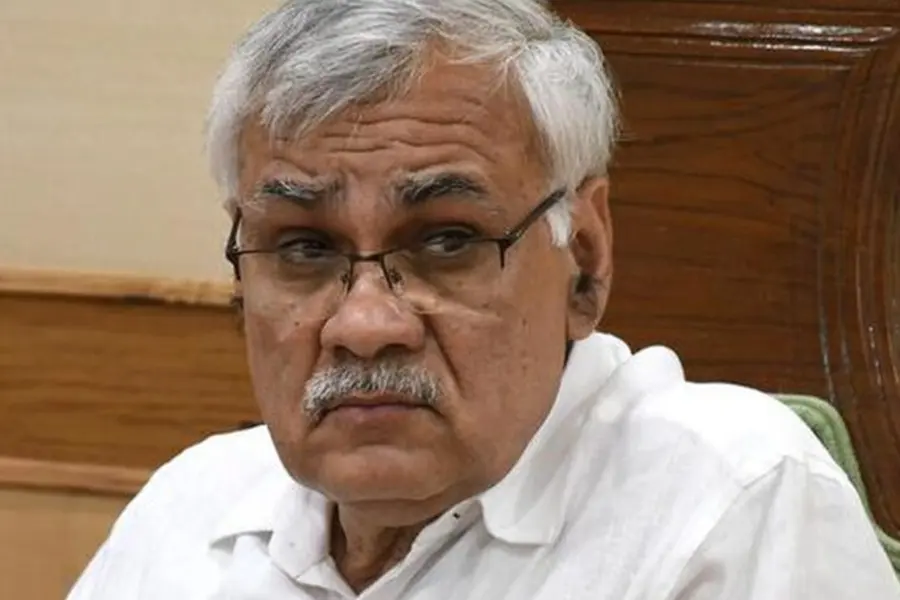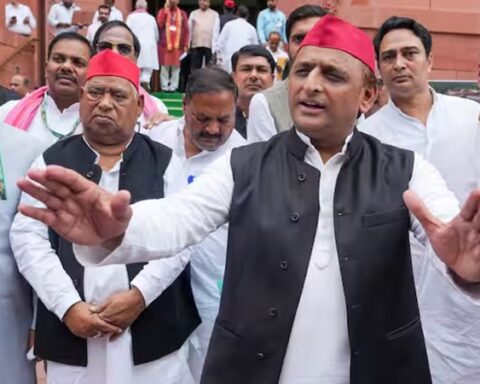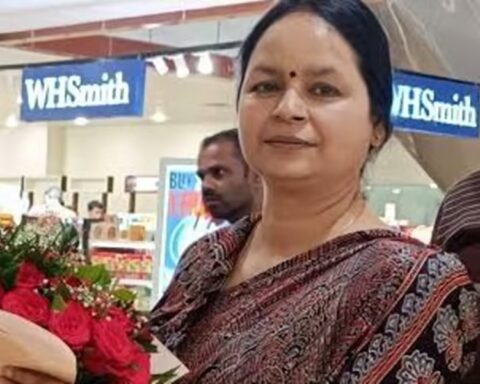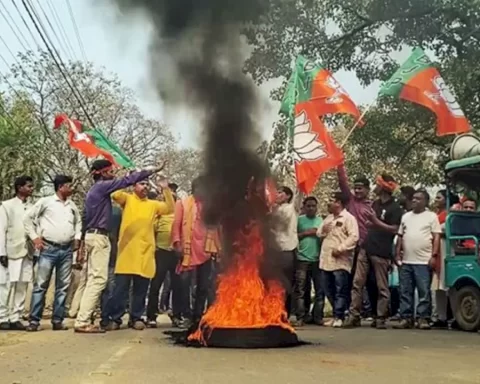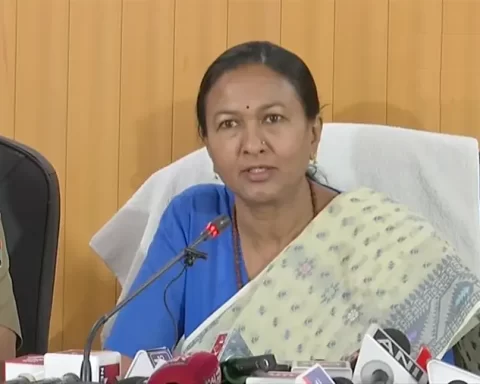Luknow (Story by Shikha Salaria, The Print): A new set of guidelines for review of development and law and order in Uttar Pradesh seemingly led to unease among the IPS circles that required none other than Chief Minister Yogi Adityanath himself to intervene and revoke the order, ThePrint has learnt.
The Controversial Order by CM Yogi Adityanath:
The order issued 30 August by UP chief secretary Durga Shanker Mishra stated that the district magistrates (DMs) will review the law and order in 68 of the total 75 districts.
The now-repealed order — a copy of which is with ThePrint — said that the DM would preside over the monthly law and order meetings and the senior superintendent of police (SSP)/superintendent of police (SP)/additional district magistrate, additional SP, deputy SP, senior prosecution officer, district government counsel and all station house officers (SHOs) would attendance those meetings.
Exception for Commissionerate System Districts
In the remaining seven districts of Agra, Ghaziabad, Kanpur, Lucknow, Noida, Prayagraj and Varanasi, the police commissioners will have the responsibility under the police commissionerate system.
This led to the UP Police brass taking up the matter with the CM and the order was overturned within hours, a state government source said, adding that by the evening of 31 August, district police chiefs were informed that the order was rescinded.
“Such an order has not been issued for the first time. An order was issued on the same lines in 2017 too, but it was withdrawn after the DGP headquarters and top IPS officers expressed discontent. This only shows that some IAS officers want to display one-upmanship and keep making attempts to usurp the powers of the IPS officers,” a senior police officer privy to the developments, told ThePrint.
The officer further said that the order was possibly issued without the knowledge of the chief minister.
“Since a similar order had to be withdrawn earlier and more such orders too had to be done away with by the UP government over the past six years, it seems that the CM was not kept in loop. The UP police brass took up the matter with 5, Kalidas Marg (CM’s residence) and the order was recalled the same night. Most district police chiefs were informed about the withdrawal the next day,” the officer said.
ThePrint reached out to the chief secretary via calls and messages for a comment on the order’s withdrawal but he did not respond.
“This is not the first such instance. Earlier, similar directions were issued in 2017 when Arvind Kumar (now retired) was serving as the principal secretary (home). Sulkhan Singh was the DGP then and he took up the matter with the CM after which the order was recalled,” a senior UP police officer said.
Another senior IPS officer said that such an order is “demoralising.”
“Such orders have become a recurring phenomenon in the UP government and are demoralising. Why do such orders keep reappearing? The only reason is one-upmanship of the IAS lobby. When something untoward happens in a district, the responsibility will be fixed on the police officers and not the DM,” the officer said.
Meanwhile, serving and retired IAS officers feel that in those districts which don’t have a commissionerate system in place, the DM remains the head of the criminal judicial system according to the Police Act, 1861.
“DM and SSP/SP have to work jointly, and both hold regular meetings to maintain law and order. During the Mayawati regime, there were clear written instructions that such meetings will be held and presided over by the DM. When there is any untoward incident like a communal riot or unrest in a district, the DM, too, is held responsible and accountable. So why should the DMs not hold law and order meetings, when action is taken on DMs too in case any such incident happens,” former state chief secretary Alok Ranjan told ThePrint.
Ranjan added that while the DM does not have to discuss issues of crime control in such meetings, there are other issues like imposition of NSA, Gangster Act, invocation of preventive detention orders and illicit distribution of liquor which can be discussed. “Better coordination only improves the law and order situation and does not mean that one is above the other.”
A senior IAS officer serving with the Uttar Pradesh government said that the DM is required to take a neutral view on most issues and if checks and balances are there on policing, the same should be welcomed.
“There are a lot of human rights issues and those pertaining to grievance redressal issues over which the DM has to take a neutral view. Checks and balances are there in the governance system to ensure better grievance redressal mechanism. Both the DM and the SSP need to work in tandem for ensuring law and order, and it should not be viewed as an encroachment in anyone’s domain,” he said.
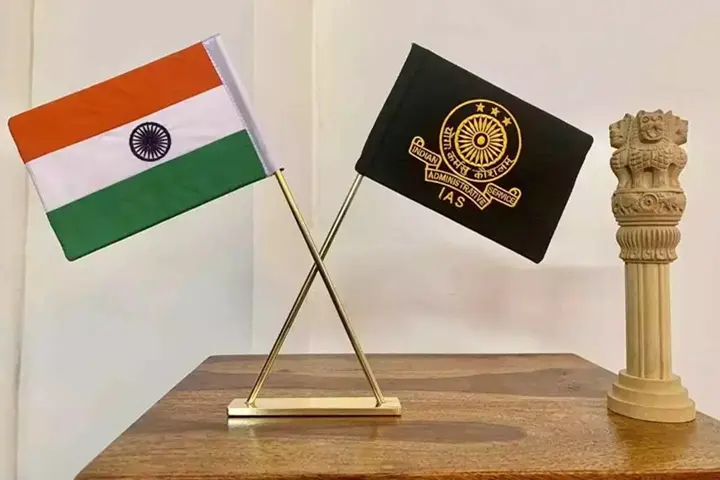
IAS-IPS tussle not new in state
In the UP power circles, tussles between the IAS and the IPS lobbies are nothing new and the Yogi rule has seen several instances where it has become public.
Apart from the withdrawal of the 2017 order which was possibly the first such instance in the Yogi rule, a 2018 government order mandating district police chiefs to appoint SHOs after consultation with the DMs had caused friction in several districts.
The Gautam Budh Nagar and Ghaziabad DMs shot off letters to the SSPs for issuing transfer orders of SHOs without taking prior approval. The matter came to rest after the IPS association requested Yogi to withdraw the order and the then DGP O.P. Singh raised the matter with him.
“When the order was issued, we started facing problems as young IPS officers would feel very embarrassed and suffocated. It was communicated to the CM, who was aware of the situation and matter came to rest. The CM is a strong administrator who understood the implications of such an order on police organisation,” Singh told ThePrint.
He added that some sections in IAS circles “keep reviving the issue whenever they get an opportunity”.
Ex-UP DGP Sulkhan Singh alleged that the August order was “a mischief by a lobby of IAS officers”.
“The chief secretary does not issue such orders all by himself and usually does that only after consultation with other IAS officers, who seem to have done mischief here. It is difficult to issue such orders when you have a strong DGP in place. If the DGP is strong, he enjoys immunity from such mischievous acts,” he said, noting the state currently has an acting DGP in office.
Under the dual system of police administration in the colonial era Police Act, the district collector is overall in-charge while the SP reports to him/her.
“Since there was no amendment in the Act on this subject, the nomenclature and DM’s prerogative as the head of the criminal justice system continues. However, after Independence, a lot of changes happened in the policing system and the IPS officers gradually started getting more sway while the DM remained the nominal head. But since the DM usually used to be a seasoned bureaucrat and older, the SSP/SP gives respect to the former,” a senior IPS officer explained.
Several important powers like imposition of the National Security Act (NSA), the Goonda Act, the Gangster Act, Official Secrets Act, issuing gun licenses continue to rest with the DM, the officer added.
As the system evolved gradually, the system of monthly law and order meetings and SHO transfers saw changes as well.
“Initially, the DM presided over a law and order meeting. Gradually, these meetings were replaced with periodic meetings before some festival or important event which were jointly conducted by the DM and the police chief, but crime would not be discussed. Even DMs refrained from discussing crime control and would only speak to the police about their preparations to ensure that the SSP/SP does not feel offended,” he said.
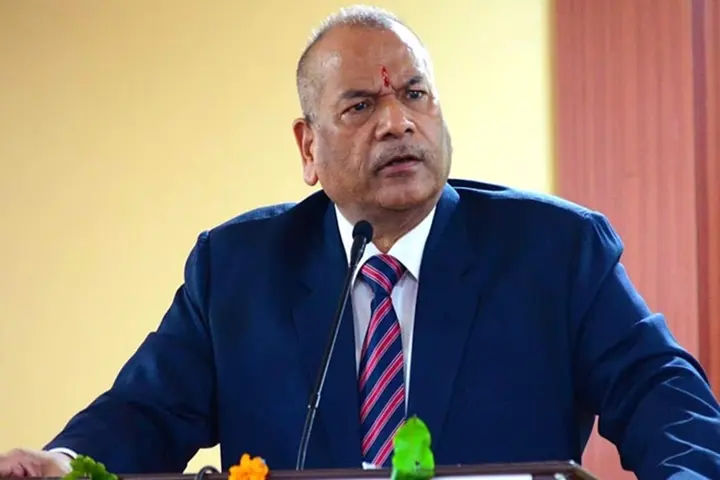
‘Attempt to nibble police power’
Former DGPs Vikram Singh and Brij Lal termed the latest order regarding the law and order meetings as an attempt to nibble away the police’s power and the frustration of the IAS lobby over the implementation of the commissionerate system.
“This is a clear attempt to nibble away the police power. In my time, law and order meetings would be held but always at the police lines or at the control room, and never at the DM’s residence. DMs always went by the advice of the SSPs. My senior IAS colleagues never flaunted seniority. The introduction of the commissionerate system was a bone of contention and the feeling with the IAS lobby was ‘praan jaye,par commissionerate na aye’. But, old habits die hard. This is the frustration of the IAS officers over the introduction of the commissionerate system,” Singh told ThePrint.
The Commissionerate System
In the commissionerate system, which was introduced in 2020 in the state, the police commissioner gets several powers that the DM enjoys. For this purpose, a three-tier policing system comprising the commissioner, deputies and assistant commissioners of police work in tandem.
Under the system, the commissioner gets the power to invoke the Gangster Act and the UAPA, prohibitory powers under Section 107/116 of the CrPC, proceedings of eviction from district and orders to use force to disperse an assembly, among others.
Lal, a Rajya Sabha MP, said the order was an attempt of one-upmanship by the IAS lobby and is in bad taste. “If the DM and the SSP don’t work in tandem, it affects law and order. Such attempts by IAS officers to take the share of the police power were made earlier as well and are in bad taste. I would thank the CM that the order is withdrawn,” he said.
A district police chief told ThePrint that the DMs usually don’t interfere in regular policing and that the two heads work in tandem as the SP depends on the DM for several matters, including enforcement in cases pertaining to excise, mining and issuance of notices under Section 107/116 of the CrPC.
“An IPS officer never has a problem with a DM holding some powers till the time both act maturely. In fact, the DM is the only point of contact who can extend help on several issues. Many old rules are not followed now. For example, the rule to take permission from the DM before posting SHOs was changed and the SSP/SP only has to inform the DM about the transfers now. However, nowadays, the SSP/SP usually informs the DM verbally and the transfers happen,” the officer said.
Clashes happen when an SSP/SP doesn’t inform the DM about the transfers, he noted.
“There have been instances where young IPS officers have gone ahead with transfers without even informing the DM. In such cases, if the DM happens to be a senior IAS officer, he/she can stop the transfers. Usually, the DM happens to be a seasoned bureaucrat in districts which don’t have a commissionerate,” he said.
The officer cited an instance from 2018 in Gautam Budh Nagar when a group of SHOs joined their new posting even before the transfer letters reached the DM’s office.
The then DM B.N. Singh wrote to the SSP expressing his displeasure. Senior police officers intervened when the matter reached the highest echelons of the UP government, and the SSP later wrote to Singh.
“If such a dispute arises in any district, the DIG of the range under which the district falls is the last authority to take a final call. So, in effect, this power remains with the police,” the officer said.
Police Perspective:
Senior IPS officers that ThePrint spoke to said that the monthly law and order meetings presided over by the DM gradually gave way to periodic meetings under the district police chief. On special occasions like ahead of festivals or important events of international, national and state level, the DM convenes a meeting where the SSP/SP remains present.
“In such meetings, the SSP/SP usually briefs the DM about the police preparations and crime control is not discussed,” an additional SP-level officer told ThePrint.
(Edited by Tony Rai)
This report is generated from The Print news service. The Sen Times holds no responsibility for its content.

